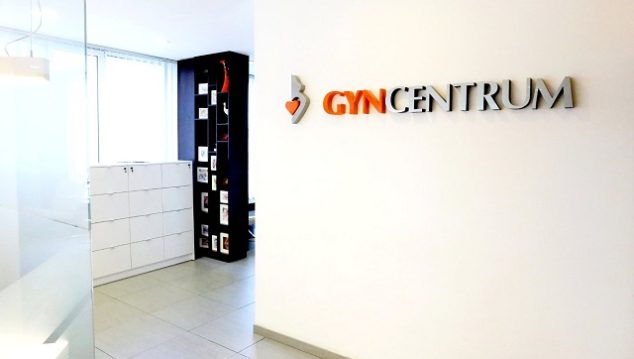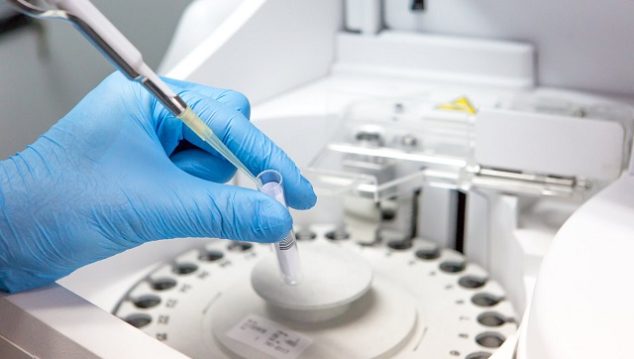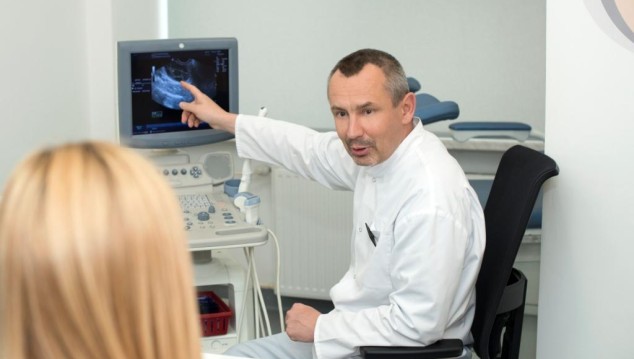Table of Contents
- 1 Why fertility patients choose Poland as their treatment destination?
- 2 What are the standards of fertility treatment in Poland?
- 3 What nationalities are your patients?
- 4 Do patients expect their fertility treatment to be in their native language?
- 4.1 What percentage of clinic-patient communication is done in patient’s native tongue? What languages are used by the clinic’s staff and doctors?
- 4.2 Which fertility procedures are most frequently performed at Gyncentrum?
- 4.3 How long is the donor egg waiting time?
- 4.4 Why do patients choose being treated in Poland as opposed to Czechia or Ukraine? What are their criteria?
- 4.5 What treatments are available at Gyncentrum:
- 5 Costs and success rates of IVF with donor eggs at Gyncentrum
- 5.1 What is your opinion about the average cost of medical services provided in Poland compared to other destinations?
- 5.2 Is fertility treatment success rate data monitored at Gyncentrum?
- 5.3 What is your opinion on IVF success rates in Poland?
- 5.4 What can be done to improve the success rates even more?
- 6 Fertility legislation in Poland
- 6.1 What Polish laws regulate fertility treatment in your country?
- 6.2 Is there any legislative body that governs, oversees or monitors the quality of IVF clinics in Poland?
- 6.3 Which fertility procedures are legal in Poland?
- 6.4 Do patients face any legal limitations to undergo treatment? For example, patient’s age, their marital status, a max. number of embryos transferred, etc.
- 6.5 What are the egg donation laws in Poland?
EggDonationFriends have interviewed dr Dariusz Mercik, experienced gynaecologist, obstetrician, and endocrinologist. Dr Mercik from Gyncentrum, fertility clinic from Katowice, Poland, is a member of many gynaecological and endocrinological associations and has a number of certifications covering idiopathic infertility and thyroid pregnancy problems seminars and symposiums.
Why fertility patients choose Poland as their treatment destination?
Poland is attractive to foreigners not just because of the price factor, but more importantly because of an excellent level of care and advanced technological progression when it comes to private medical care. Patients arriving in Poland benefit from both, firstly – an attractive price which corresponds to only a half of the cost they would pay in their country of origin, secondly – the extensive expertise of fertility doctors and other medical personnel along with technologically advanced equipment and methods used within Polish IVF clinics.

What are the standards of fertility treatment in Poland?
It is the quality of treatment that draws patients in, rather than the price. International patients are impressed by the wide range of available choices, by the convenience of solutions selected and, most of all, by the high IVF success rate. That is what makes Poland a noticeable medical tourism destination when it comes to IVF.
What nationalities are your patients?
The biggest number of patients visiting Gyncentrum in Katowice are from Great Britain. They make up approximately 20% of the total clinic’s patients. German patients are just behind them constituting approx. 18% and the Americans – 9%. Other foreign patients of our clinic are: Swedish and French who account for 8% of foreign patients and Russians who are 6%.
Furthermore, in the recent years we have observed steady surge of patients coming from countries outside of Europe or the USA, especially from the Middle East and Africa. Already 6% of them come from the United Arab Emirates and 8% from African states, like Nigeria or Ivory Coast.
Do patients expect their fertility treatment to be in their native language?
Not all patients expect treatment to be in their native language. We know that infertility treatment is a difficult journey, so we make sure to make it as easy as it is possible for our patients. Our team speaks fluent English. Foreign fertility patients are surrounded with great care during their entire treatment at Gyncentrum. Starting from planning the treatment, patients’ arrival in Katowice, the procedures and then departure after the completed treatment, we aim to provide information and assistance. Also Gyncentrum customer service remains at their disposal for patients to make sure their stay in Gyncentrum is a positive and stress free experience.
What percentage of clinic-patient communication is done in patient’s native tongue? What languages are used by the clinic’s staff and doctors?
We communicate with about 60% of Gyncentrum patients in their native tongue. We also offer treatment in English, Russian, Ukrainian, Serbian and Slovakian.
Which fertility procedures are most frequently performed at Gyncentrum?
Vast majority of infertile couples who decide on infertility treatment in Poland choose a standard IVF (55%), further 45% of them use IVF with donor eggs and remaining 5% need insemination procedure.
How long is the donor egg waiting time?
The female patient is matched with a donor from egg donor database who meets her requirements within only 1-2 weeks.
Why do patients choose being treated in Poland as opposed to Czechia or Ukraine? What are their criteria?
Gyncentrum delivers cutting-edge methods, ART technologies and doctors’ expertise – it’s of paramount importance to patients. Also IVF success rates and doctors’ experience are extremely common selection criteria for patients.
What treatments are available at Gyncentrum:
- IVF with donor eggs – fresh & frozen oocytes
- IVF for single women – not offered
- IVF for same sex partners – not offered. According to Polish law we can’t treat same sex couples.
- Sex selection – in Poland no IVF procedure can be used to select the sex of the baby, except for medical cases to prevent serious genetic diseases. It is always performed by the doctor’s recommendation.
- Donor sperm
- Embryo donation
- Surrogacy – not offered
- PGS – chromosome screening
- PGD – single gene diagnosis
Costs and success rates of IVF with donor eggs at Gyncentrum
What is your opinion about the average cost of medical services provided in Poland compared to other destinations?
In vitro treatment in Poland can be up to 60% cheaper. For example, an IVF cycle in Germany is priced at approximately €6,500, while the cost of the same procedure in the UK ranges from €6,250 to €7,500 and in the US it can be as high as €11,000. Hence it is not surprising that patients are welcoming an alternative solution in the form of undergoing the procedure in a different country such as Poland. Here they spend on average €3,500-3,750 per cycle. No wonder that Germans, Americans and Brits constitute the largest group among foreign patients heading for Polish IVF clinics. Paradoxically, it is the quality of treatment that draws patients in, rather than the price. International patients appreciate the broad range of various procedures and tests offered and the high success rates. At present Poland is successfully competing with such countries as Spain, the Czech Republic or Hungary.
Is fertility treatment success rate data monitored at Gyncentrum?
Yes, the success rate of IVF and IVF with donor eggs is monitored by Ministry of Health, and is measured internally and sent over to the Ministry of Health.
What is your opinion on IVF success rates in Poland?
I think that the success rate in Poland is something that draws fertility patients in the most. This is something we’re definitely proud of.
What can be done to improve the success rates even more?
This is something we work on and focus on all the time. We continuously strive to maintain up-to-date techniques and the latest innovations by continuing our medical education.
Fertility legislation in Poland
What Polish laws regulate fertility treatment in your country?
IVF treatment is regulated by “Ustawa o leczeniu niepłodności” (Infertility Treatment Law).
Is there any legislative body that governs, oversees or monitors the quality of IVF clinics in Poland?
Fertility clinics in Poland are inspected regularly – at least once per year. The focus of the inspections is to see that clinics adhere to the standards set out. We’re certified, among others, by ISO/IEC 27001:2013, ISO 9001:2015. We’ve been awarded Quality International in 2016, 2015 and 2014.
Which fertility procedures are legal in Poland?
The procedures that are available in Poland are IVF, IVF with donor eggs, embryo adoption, insemination, and reproductive cell freezing. Surrogacy is not allowed.
Do patients face any legal limitations to undergo treatment? For example, patient’s age, their marital status, a max. number of embryos transferred, etc.
Unfortunately, assisted reproduction is not available to single women and same-sex couples.
- An “infertile couple” is classed in Poland as a man and woman who live together in a relationship. They do not need to be married to undergo the treatment.
- There is no age limit – the decision about the treatment is based on patient’s health and medical examinations and Gyncentrum can be one of the best IVF clinics for over 45
- Sex selection is not allowed for non-medical reasons.
- Egg and sperm donors are anonymous.
- Surrogacy is not permitted.
- The max. no. of embryos allowed to be transferred is three.
- Egg freezing is permitted.
What are the egg donation laws in Poland?
Everything is regulated by Infertility Treatment Law (Ustawa o leczeniu niepłodności). By law, egg donors are screened psychologically and physically before being able to donate their oocytes. The qualification is based on a multistage verification.
In order to undergo the egg adoption treatment a couple need to be medically assessed and qualified by Gyncentrum specialists and needs to fulfil the above mentioned requirements.








